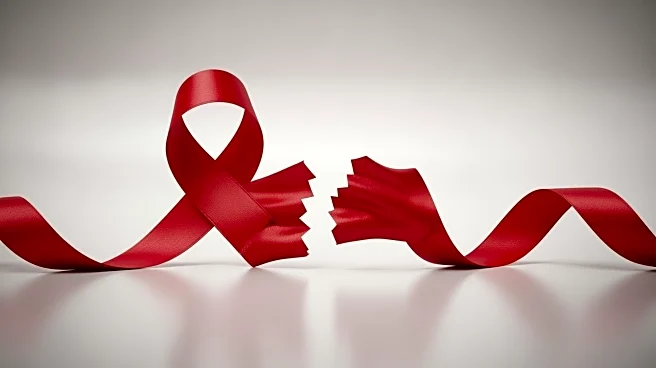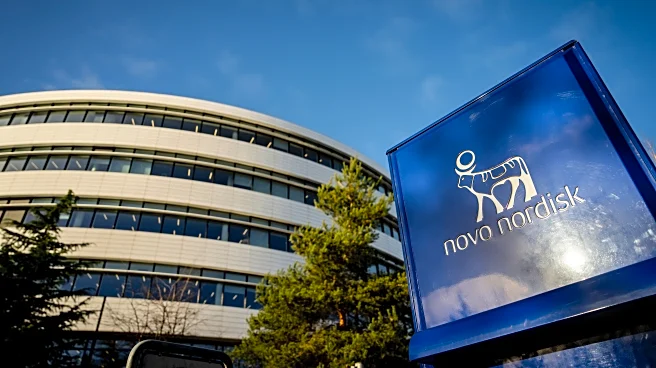What's Happening?
The U.S. aid cuts have significantly impacted HIV programs in Lesotho, a country that previously made strides in combating the epidemic with nearly $1 billion in aid from the United States. The cuts followed
President Trump's executive order freezing foreign aid, leading to the dismantling of the U.S. Agency for International Development (USAID). This has resulted in confusion and temporary solutions, with many health centers shutting down and vulnerable populations unable to access necessary HIV testing and treatment. The State Department has announced temporary reinstatement of some programs, but the long-term impact remains uncertain.
Why It's Important?
The aid cuts have disrupted a system credited with saving hundreds of thousands of lives, causing chaos and uncertainty among HIV-positive residents and health workers in Lesotho. The loss of funding has led to increased HIV transmission risks, more deaths, and higher health costs. The situation highlights the dependency of low- and middle-income countries on international aid for public health initiatives. The shift towards self-reliance is seen as necessary but should be gradual to avoid setbacks in health progress. The cuts have sparked concerns about the future of global health efforts and the potential resurgence of the HIV epidemic.
What's Next?
Negotiations between the U.S. and Lesotho are ongoing to establish a multiyear agreement on funding. The temporary measures announced by the U.S. aim to ensure continuity of lifesaving programs, but restarting them on the ground will take time. Lesotho is mobilizing domestic resources to address gaps, but the transition to self-reliance poses challenges. The situation calls for a reevaluation of international aid strategies and the need for sustainable health systems in affected countries.
Beyond the Headlines
The aid cuts have ethical implications, as they affect the most vulnerable populations, including children and marginalized groups. The disruption of effective programs raises questions about the responsibility of wealthier nations in supporting global health initiatives. The situation in Lesotho serves as a wake-up call for countries to develop self-sustaining health systems while balancing international aid dependencies.










